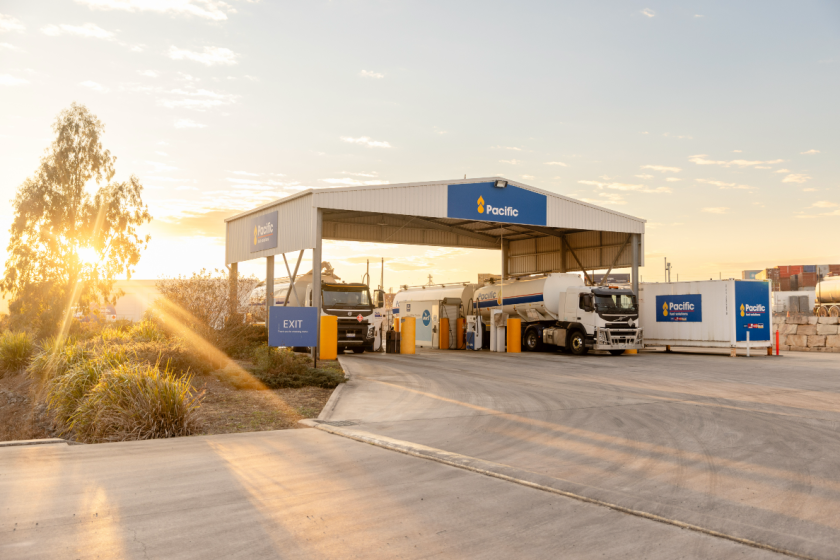For industries relying on a consistent and high-performing fuel supply, bulk storage is an invaluable asset. It offers convenience, cost savings, and operational independence. However, the benefits of bulk storage are only truly realised when the quality of the stored fuel is rigorously maintained. Neglecting fuel quality can lead to a cascade of problems, from equipment breakdowns and reduced efficiency to significant operational downtime and costly repairs.
Understanding that the fuel delivered to your bulk storage is just the beginning is crucial. Ensuring its integrity while stored is paramount for the optimal performance and longevity of your machinery and operations.
The Silent Threats: Degradation and Contamination
Fuel, particularly diesel, is not inert. Over time, and under certain conditions, it can degrade and become contaminated, compromising its performance.
1. Fuel Degradation
Fuel degradation is a chemical process where the fuel’s properties change, reducing its effectiveness. Key factors contributing to degradation include:
- Oxidation: Exposure to oxygen in the air can lead to the formation of gums, varnishes, and sediments, which clog filters and injectors.
- Microbial Growth (Diesel Bug): Water accumulation in tanks creates an ideal breeding ground for bacteria, fungi, and yeasts. These micro-organisms feed on the fuel, leaving behind corrosive by-products and slimy biomass that can severely clog fuel lines and filters.
- Temperature Fluctuations: Significant temperature swings can accelerate oxidation and lead to condensation, introducing more water into the tank.
Degraded fuel results in poor combustion, reduced engine power, increased fuel consumption, and higher emissions. For a business, this translates directly to increased operational costs and a shortened lifespan for valuable equipment.
2. Fuel Contamination
Beyond degradation, physical contaminants can also wreak havoc on your stored fuel:
- Water: The most common contaminant, water can enter tanks through condensation, faulty seals, or even during delivery. It promotes microbial growth and can cause rust in metal tanks, leading to particulate contamination and corrosion in fuel systems.
- Particulates: Dust, dirt, rust, and other debris can enter tanks during filling, through poorly sealed vents, or from internal tank corrosion. These abrasive particles act like sandpaper in your fuel system, causing wear and tear on pumps and injectors.
- Cross-Contamination: Using improper containers or inadequate labelling can lead to different fuel types or auxiliary products mixing, which can be detrimental to machinery designed for specific fuel compositions.
Contaminated fuel can cause immediate and severe damage, including clogged filters, injector failure, and system blockages, leading to sudden breakdowns.
The Importance of Proactive Fuel Quality Management
Maintaining high fuel quality in bulk storage isn’t just about avoiding problems; it’s about ensuring:
- Optimal Equipment Performance: Clean, high-quality fuel allows engines to run smoothly, efficiently, and at their peak performance.
- Extended Equipment Lifespan: By preventing wear and tear caused by degraded or contaminated fuel, you significantly extend the operational life of your machinery, reducing the need for costly early replacements.
- Reduced Maintenance Costs: Fewer breakdowns and less system damage mean fewer repairs, lower labour costs, and less expenditure on replacement parts.
- Enhanced Operational Efficiency: Reliable fuel supply minimises unplanned downtime, ensuring your operations run continuously and productively.
- Compliance and Environmental Responsibility: Adhering to fuel quality standards helps meet regulatory requirements and prevents environmental hazards like spills and increased emissions.
How to Safeguard Your Bulk Fuel Quality
Protecting your investment in bulk fuel requires a multi-faceted approach:
- Source High-Quality Fuel: Start with a reputable supplier that sources high-quality petroleum products from major oil company operated terminals. This minimises the risk of receiving already contaminated or unstable fuel.
- Invest in Quality Storage Equipment: Ensure your tanks and ancillary equipment (pumps, bowsers, piping) are designed to the correct standards and legislative requirements. Suppliers like Pacific Fuel Solutions provide a complete range of compliant fuel equipment, including tanks and bowsers, to help prevent leaks and contamination.
- Implement Robust Fuel Management Practices:
- Regular Inspections: Periodically check your tanks for signs of rust, leaks, or water accumulation.
- Routine Fuel Testing: Regularly sample and test your stored fuel for water content, microbial growth, and other contaminants.
- Tank Cleaning: Schedule professional tank cleaning to remove accumulated sludge, water, and sediment. Fuel polishing, a process that filters out contaminants, can also restore degraded fuel to usable condition.
- Proper Venting: Ensure tanks are adequately vented to prevent vacuum formation during fuel dispensing and allow for temperature-related expansion/contraction, but also filtered to prevent dust and moisture ingress.
- Secondary Containment: Utilise secondary containment measures to manage any spills and prevent environmental contamination.
- Fuel Rotation: For long-term storage, implement a “first-in, first-out” (FIFO) system to ensure older fuel is used first, minimising the time fuel sits in storage.
- Fuel Additives: Consider using appropriate fuel additives (e.g., stabilisers, biocides, demulsifiers) to prevent degradation and microbial growth, especially for long-term storage or in challenging environments.
- Maintain Full Tanks: Keep tanks as full as possible to minimise the air-to-fuel ratio, which reduces condensation and oxidation.
By proactively managing your fuel quality in bulk storage, you’re not just protecting your fuel; you’re safeguarding your equipment, optimising your operations, and ensuring the long-term success of your business. Partner with experts who prioritise fuel quality and reliable solutions to keep your engines running smoothly and efficiently.





